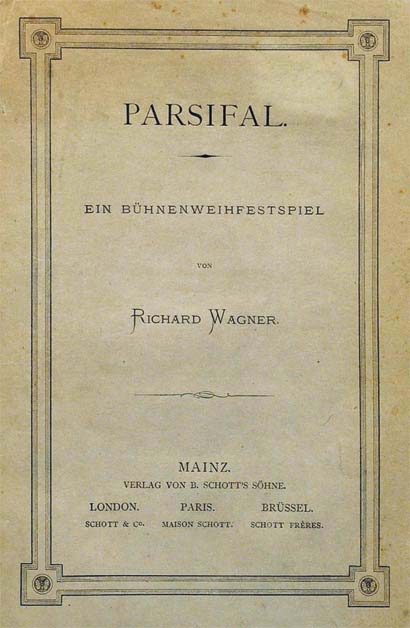The Ultimate Summer Job
While many of his classmates searched for part-time work or the perfect internship, Laurence Spezzano decided to spend his summer with Wagner. Specifically, he studied how productions of the master’s last opera, Parsifal, have changed and evolved—performance after performance—over the past 128 years. Spezzano’s summer project, which was eventually published in The 23rd Proceedings of the National Conference on Undergraduate Research, was made possible by BU’s Undergraduate Research Opportunities Program, or UROP, which supports faculty-sponsored undergraduate research.

Richard Wagner’s final opera, Parsifal, was first produced in 1882. Today, many theaters still respect the author’s wishes that the audience refrain from applause until the end of the final act.
Now UROP has found itself center stage—again. This spring, the program earned the prestigious Beckman Scholars Program Institutional Award for an unprecedented fifth time. More than 140 universities across the country applied for this competitive three-year award—which provides scholarships and stipends for two undergraduate science researchers per year—from the Arnold and Mabel Beckman Foundation. BU was one of only nine schools to receive institutional awards.
UROP’s success has everything to do with the students that it attracts, and Spezzano isn’t alone in his decision to work on a project with BU faculty over summer vacation. When the program began in 1997, UROP funded 12 students. Last summer, it supported more than 200 undergraduates, who assisted faculty on everything from visuo-spatial impairments in patients with Parkinson’s disease to the history of the German Jewish Bible.
According to Thomas Gilmore, professor of biology and UROP’s program director, high school seniors are increasingly looking for universities that offer undergraduate research opportunities.
The advantages for students are obvious. Participating in research allows them to apply what they’ve learned in the classroom to a lab or real-world setting, and helps them forge deeper relationships with professors. Equally important, a research project is often a powerful guide when it comes time to choose a life path.
“For some students, it’s the seminal experience in their career, when they realize that this is what they really want to do,” says Gilmore. “Other students decide after their research experience that they don’t really want to do this.”
Spezzano, who worked under the supervision of Thomas Peattie, an assistant professor of musicology, calls his UROP experience one of the most important of his college career. “The UROP program gives students the skills they need to conduct research, and also helps them with time management and organization,” he says. “It’s an enormous opportunity for undergrads.” Spezzano hopes eventually to earn a PhD in musicology.
And it’s not just undergraduates who benefit, Gilmore points out.
“It’s good for graduate students because most of them are going to be asked, when they become faculty themselves, to mentor junior people in their field. UROP really helps them to develop those skills,” he says. And for faculty, the fresh perspective and energy of an undergraduate in the lab can be contagious. “They make you remember why you’re doing this work,” says Gilmore—and they often make valuable contributions to the research, too.
Gilmore recounts the experience of one student, Catherine Cormier, who was part of a team that was trying to determine whether certain genes were involved in B-cell lymphoma. The project was an arduous one that involved endlessly cloning and re-cloning DNA, working one gene at a time, in an attempt to identify a specific lymphoma gene. “We really had no reason to think the particular gene we studied was going to work at all,” says Gilmore. “And the testing wasn’t something that you could do overnight.” But thanks to many hours in the lab, and a little bit of luck, Cormier found the gene she was looking for, a discovery that has led to more promising research on this serious form of cancer.
Gilmore emphasizes that receiving the Beckman Scholars Award again is just one piece of evidence that the UROP program continues to thrive, thanks to BU’s commitment to supporting undergraduate research. “Over the years, we’ve been really successful in choosing students who have gone on to research careers at top schools,” he says. “Our track record is very good.”